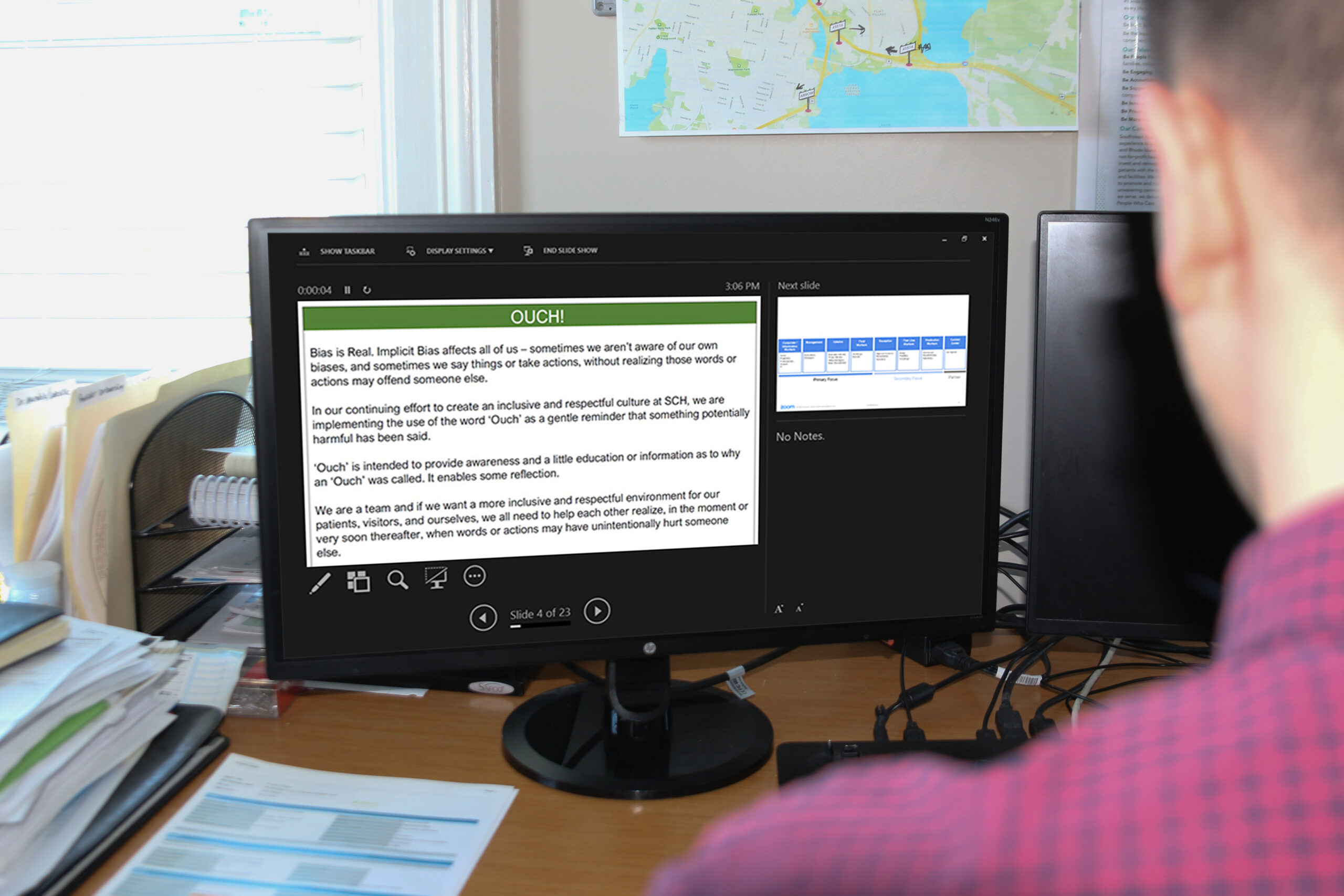Learning About Implicit Bias at Southcoast Health

At Southcoast Health, we take seriously our commitment to provide welcoming and inclusive care environments in which all staff, patients and visitors are treated with respect and dignity. This promise requires intentional, ongoing and sometimes difficult work on the part of all Southcoast Health employees, starting with our leadership team. We recently implemented Implicit Bias training to help leaders across our system identify and address potential unconscious biases that could impact patient and colleague relationships.
By the end of April, all Southcoast Health leaders—from Team Leaders to our President and CEO—will participate in the 90-minute virtual training, run by YWCA of Southeastern Massachusetts and YWCARI. The course is designed to help leaders define bias, identify and reflect on their own potential unconscious biases and learn tools for overcoming bias in the workplace. It also has created an open forum for discussion – each session includes breakout activities, when leaders review real, identity-protected patient stories and discuss potential biases that could impact patient care.
“Everyone has biases of which they may not be aware– it’s part of being human. We learn these biases from our families, neighborhoods and cultures and carry them with us throughout our life,” says Jackie Somerville, RN, PhD, FAAN, NEA-BC, Chief Nursing Officer at Southcoast Health. “As clinicians, it’s important that we identify and unpack our biases to prevent them from influencing our work.”
The COVID-19 pandemic highlighted many long-standing disparities in the healthcare system based on race, economic status and other factors. Identifying and addressing unconscious bias is an important step to ensuring all patients and colleagues are treated equitably.
“Our hospitals and health system serve the entire community and the many people who live here. Understanding bias in the workplace and in delivering patient care strengthens our ability to effectively serve this region,” said Lauren De Simon Johnson, Southcoast Health Senior Vice President and Chief Human Resources Officer.
Spearheaded by Southcoast Health’s Diversity, Equity & Inclusion Council, the course is part of Southcoast’s larger mission to combat disparities and advance health equity. Barbara Schmidt, Director of Organizational Culture & Engagement, leads the Diversity, Equity and Inclusion Council. She added that “whether our roles as leaders are clinically facing or not, bias can play an important role in recruiting, hiring, promoting and terminating decisions as well as how we treat our fellow employees. This course helps us become aware of those potential biases.”
More than 500 Southcoast Health leaders participating in these trainings are already bringing their learnings back to their departments to create an environment that is as respectful, safe and caring as possible. Eventually, this critically important course will be conducted for all Southcoast employees.
“The training was a helpful reminder not to become complacent; no matter how much you’ve studied or researched implicit bias, there is always more work to be done, said Somerville, when asked about her own takeaways from the course. “It is a positive step in recognizing that health disparities exist,” she added. “I am so proud to be part of an organization that has the courage to take on this difficult work.”
To learn more about Southcoast Health’s Diversity, Equity & Inclusion Council, please visit our website or email Barb Schmidt, Director of Organizational Culture and Engagement, at schmidtb@southcoast.org.

 Matt Guthrie
Matt Guthrie 